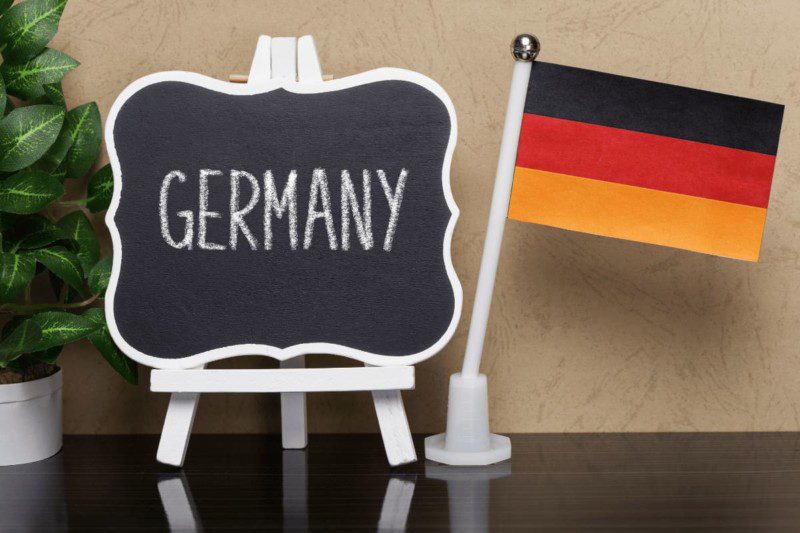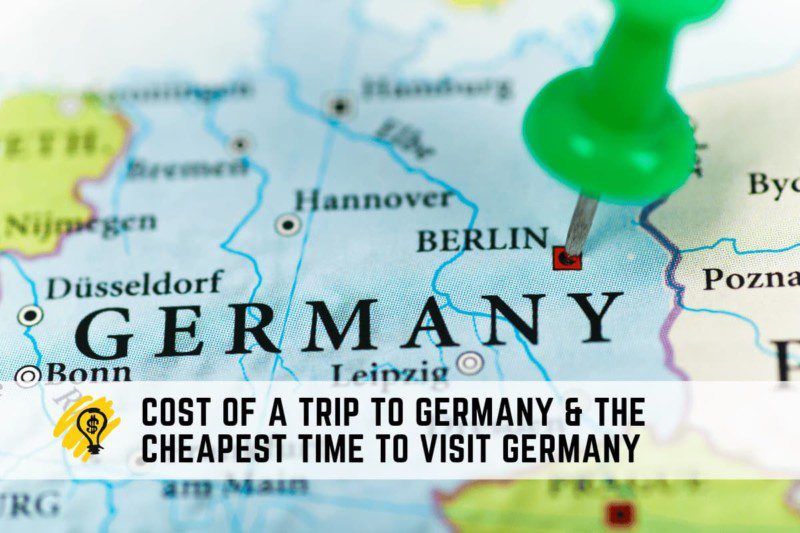It is well-known that Germany has firmly established itself as one of the best travel destinations. Germany has much more to offer than what meets the eye. Germany’s multitude of regional identities offers visitors a cornucopia of wide-district experiences that one will surely like. Germany has it all: great architecture, beautiful scenery, lively festivals, exciting nightlife, glamorous events, delicious foods, historical places, museums, adventure, fun activities, and the best quality beer. In Germany, there are 51 UNESCO World Heritage sites.
In addition, despite being in Western Europe, Germany is a comparatively cheap country to visit and explore. Even Germany’s capital, Berlin, is considered one of the most pocket-friendly and affordable cities in Europe.
Now that you have already been intrigued to plan a trip to Germany, you would most probably like to know the cost of traveling to Germany and the cheapest time to visit. This article will anticipate the average cost of a trip to Germany and help you find the most reasonable time to visit Germany.
Cost of a Trip to Germany
What is the average cost of a trip to Germany? This question is the first thing that comes to mind when planning a trip to Germany. You can answer this by breaking down the overall cost of a trip to Germany into various categories, such as accommodation, food, transportation, etc., and discussing each type in detail.
1. Cost of accommodation in Germany
In Germany, you’ll find several accommodation options. Hostels are the best options to save money on your German trip. You can get a dorm bed for one night in a well-reviewed hostel in Germany at around $25. You might need to pay $50 for one night if you choose the best hostel.
If you rent a private room that’s well-cleaned and in a good location, you would need to pay around $70 for one night. For $100, you can find an extraordinarily well-reviewed private room in a hostel or a hotel. However, if you want to avoid staying in a hostel, you can get a decent, well-cleaned room in a hotel located in a central location within the price range of $20-$60.
Hotel and hostel prices will vary depending on the location, travel season, and luxury. For more clarity, you must check the website of the hotels present in the cities you would visit while on a trip to Germany.
2. Transportation costs in Germany
In Germany, you will come across many forms of transportation, such as bike services, buses, and trains. Here, biking is the most popular means of transportation. Pedal Helden, in Munich, offers bike services for $22 per 8-hour rental. On the other hand, Berlin on Bike offers bike rentals starting at just $10.1 to $15.1 per 24 hours.
Trans and buses are the next most popular and budget-friendly ways to travel across Germany. You can procure a Munich Card that starts at just $4.9 and offers 24-hour unlimited public transportation, which includes buses, regional trains, and trams. It also provides 70% off discounts and reductions on admission fees at several tourist attractions. You can buy either a single-day or a multiple-day pass.
The Frankfurt Card offers no-cost travel on all public transport within Frankfurt city, including the Frankfurt International Airport. You can avail of this travel card for one or two days. This card also offers around 50% discount on museum admissions, city tours, and other attractions. You must buy this card if you are on a trip to Germany.
A taxi ride in Germany costs more than public transportation. While a car rental might cost you $50.3, a short taxi ride costs around $20.1.
In German language, S-Bahn means a “rapid train.” Rapid trains run in large cities like Frankfurt, Berlin, and Munich. A single ticket for this rapid train in Berlin is $3.50, a 7-day pass costs $34, and a 24-hour pass costs $10.50.
Boarding on a U-Bahn, also known as an underground railway, is the quickest way to travel from one place to another. A one-way U-Bahn ticket in Berlin costs you $3, and a 24-hour unlimited pass will cost you around $7. Intercity (IC), Intercity Express (ICE), and EuroCity(EC) connect all larger urban areas. You can visit the training website to find and book the most inexpensive ride while taking a trip to Germany.

3. Cost of Food in Germany
A basic breakfast in Germany will cost you somewhere around $6 to $10, which may include a croissant ($1.50) and a cappuccino($4.50). Lunch is considered the heaviest meal in a day, and it usually consists of a main dish, a dessert, and soup. Since every dish is usually bought separately, you can easily pick as per your appetite and your budget. An average meal would cost you around $13.1 for each person. Dinner is usually the lightest fare; on average, it would cost you approximately $12.
In Germany, a cocktail would cost you around $8, a bottled beer might cost $5.57, and a glass of wine might be worth $5.75.It would be best if you remembered that the food price in a sit-down restaurant in Germany is usually higher than street food prices.
4. Cost of activities in Germany
Germany is a treasure trove of activities, depending on what time you visit Germany. However, you can enjoy the beauty of sightseeing year-round.
While taking a trip to Germany, you can find an abundance of castles. If you visit during the Heidelberg Castle Festival, you would need to spend anywhere between $16 to $59, depending on the location of your seat and the performance you choose to see.
While the cost to attend Oktoberfest is zero, you would have to spend handsomely on the games, rides, and food items. A tour of the Berlin Wall accompanied by a tour guide would cost you around $18.
In Germany, the average cost of activities, such as city tours and a river cruise, is around $41 per day. This would, however, vary significantly from person to person depending on the places you plan to visit and the activities you indulge in.
The average cost of a 7-day trip to Germany is around $2,217 for a couple, $1,379 for a solo traveler, and $2,208 for a family of 4 members. The average worldwide flight cost to Germany (from any airport across the world) ranges between $750 and $1,179 for economy flights. For first-class flights, the cost would range between $2,355 and $3,702.
The average amount of money one would need to spend each day in Germany would be around $208 for one person. This total cost would, however, include the costs of accommodation, food, transportation, and activities.
However, to further lower the cost to travel to Germany, use an international debit card that will be your best travel buddy. You can loadthe INR-based interest-earning digital savings account linked to this global card with Indian Rupees from any of your other bank accounts and spend in local currencies in over 150 countries. Hence, you won’t have to carry bundles of cash while vacationing in Germany.
Moreover, you usually need to pay a forex markup fee while making payments in a foreign currency or using any debit/credit card. However, this unique travel cum debit card has zero forex markup fee. And the amount deposited in your savings bank account linked to this debit card will yield interest at the rate of 5% p.a. This means you’ll be earning money even while on vacation. The international debit card comes with an in-app ATM locator too. In addition to this, it does not even charge loading and fund transfer fees. With all of these parks, it’s a must to take when traveling abroad.
Cheapest Time to visit Germany
The cheapest time to plan a trip to Germany is between January and March for several reasons, as stated below.
- The winter season in Germany roughly starts in December and stretches up to March. Winter in Germany is harsh and not for the faint-hearted. During these months, temperatures often go below freezing point. While temperatures usually range between -5°C and 5°C, sometimes it dips as low as -20°C. Hence, tourists without prior experience in extremely low temperatures should not risk visiting Germany during these months.
- Each year in January, Germany witnesses the heaviest snowfall. Due to snowfall, a lot of tourist attractions are shut down. Heavy snowfall might also deteriorate road conditions.
- The days become shorter and the nights longer as the sun goes down at around 4:00 pm, so visitors get less time to explore various places and tourist attractions.
The reasons above discourage many tourists from planning a trip to Germany from January to March. Hence, unlike Germany’s peak tourism season (July-September), which attracts the maximum crowd, during January – March, the flight and accommodation cost sharply decline due to less demand among tourists.
Conclusion
Germany is a world-class destination with so much to offer its explorers and visitors. Indeed, a trip to Germany will make you fall in love with its buildings having Gothic architecture, the festive vibes that ooze during Oktoberfest and Christmas, the rolling hills of its countryside, the picturesque castles, the cozy Christmas markets, the hiking and skiing experience on the mountains of Bavaria. In short, Germany has something for everyone.





